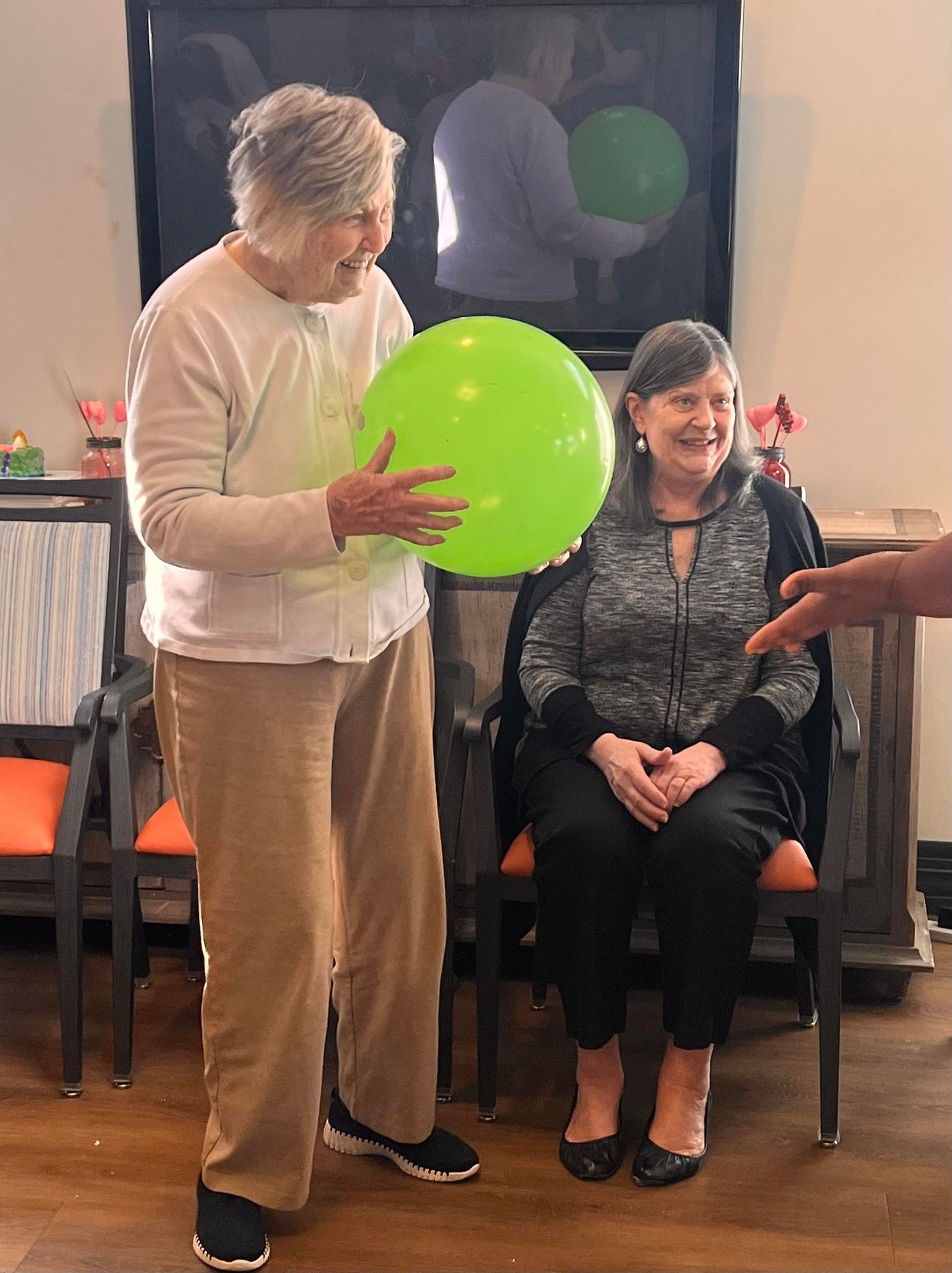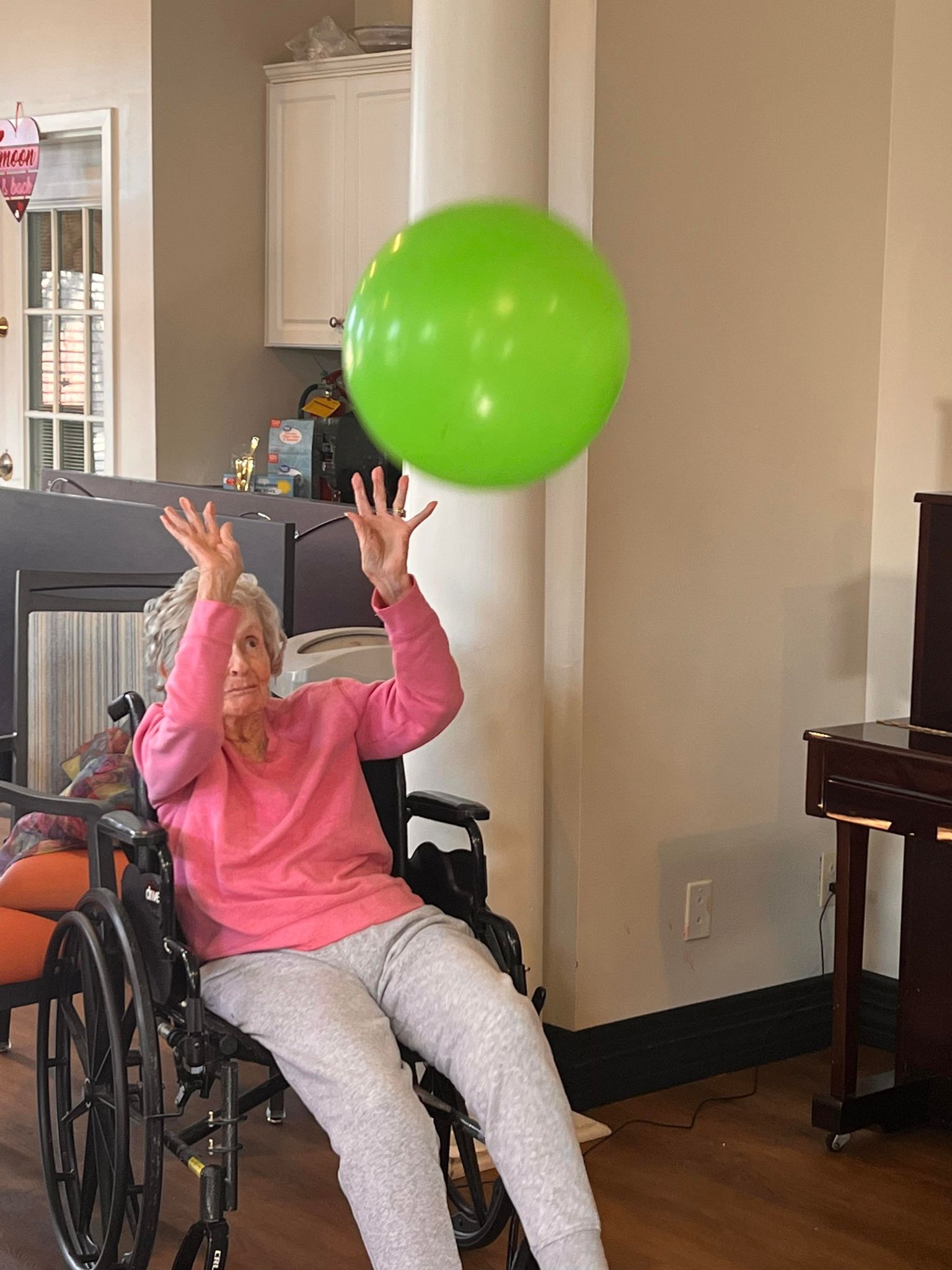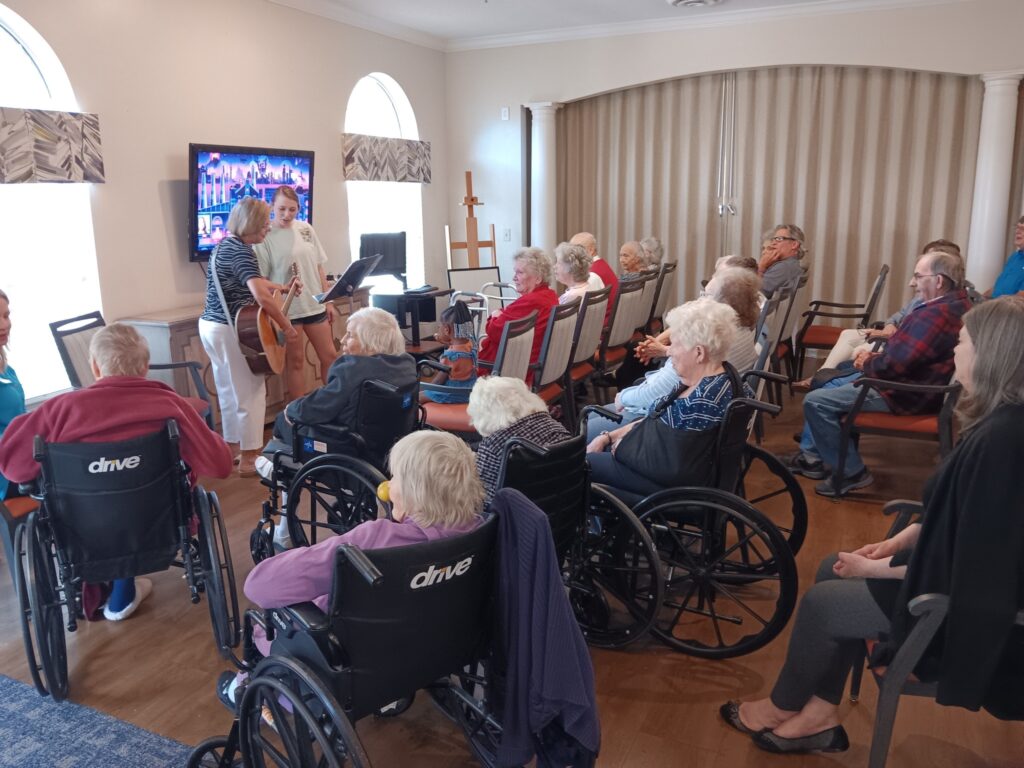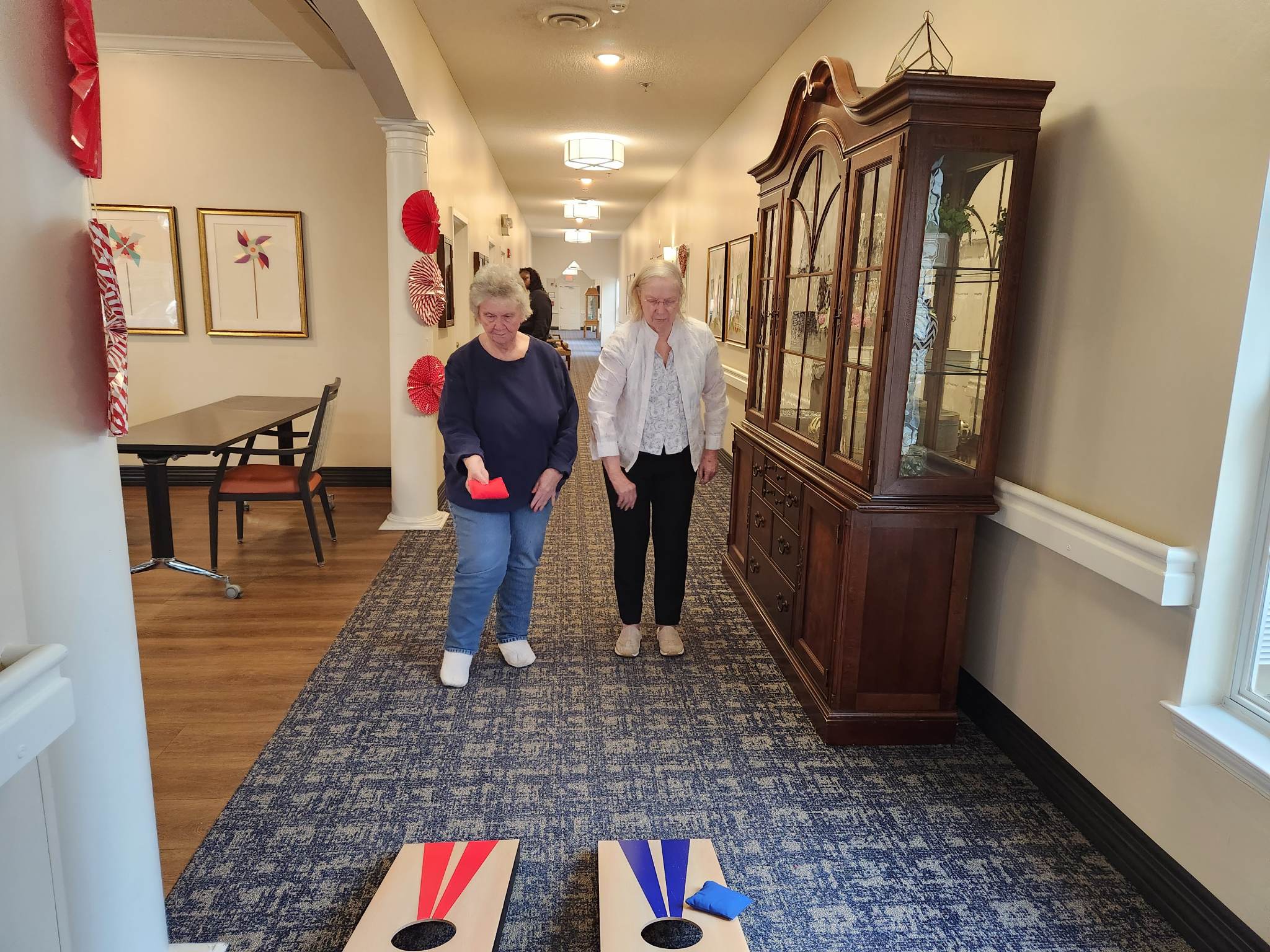Memory care is a critical aspect of healthcare that focuses on providing specialized support and assistance to individuals facing memory impairments, such as dementia or Alzheimer’s disease.


As these conditions can significantly impact cognitive function and overall well-being, finding effective interventions to support memory care residents becomes paramount. In recent years, the role of exercise in memory care has gained considerable attention, offering promising benefits beyond physical health.
Understanding the Link between Exercise and Cognitive Health
The relationship between physical exercise and cognitive health has become a topic of significant interest in recent years. Research has shown that regular physical activity not only benefits the body but also plays a crucial role in maintaining and improving cognitive function. In this section, we will explore the scientific basis behind the connection between exercise and cognitive health.
- The Brain-Body Connection:
The brain and body are intricately connected, with each influencing the other’s functioning. When we engage in physical exercise, our bodies release various chemicals, such as endorphins, serotonin, and brain-derived neurotrophic factor (BDNF). These chemicals not only contribute to improved mood and reduced stress but also support brain health by promoting the growth and development of new neurons.
- Blood Flow and Oxygenation:
Physical activity enhances blood flow throughout the body, including the brain. Improved blood circulation ensures a steady supply of oxygen and nutrients to brain cells, supporting their optimal performance. Additionally, exercise stimulates the production of nitric oxide, which further aids in vasodilation, allowing for increased blood flow to brain regions responsible for cognition and memory.
- Neuroplasticity and Cognitive Reserve:
Neuroplasticity refers to the brain’s ability to reorganize and form new neural connections throughout life. Regular exercise has been linked to increased neuroplasticity, allowing the brain to adapt and compensate for age-related changes. Moreover, engaging in physical activity has been associated with the concept of cognitive reserve, where individuals build resilience against cognitive decline, reducing the risk of developing neurodegenerative diseases.
- Effects on Brain Structure:
Advanced neuroimaging techniques have revealed that exercise can influence the structure of the brain positively. Areas responsible for memory, learning, and executive functions, such as the hippocampus and prefrontal cortex, tend to exhibit greater volume in individuals who participate in regular physical activity. This suggests a potential protective effect against cognitive decline and age-related brain atrophy.
- Impact on Cognitive Functions:
Numerous studies have demonstrated that exercise can have specific and measurable effects on various cognitive functions. These include improved attention, concentration, processing speed, and executive functions. Additionally, exercise has been associated with enhanced learning abilities and memory retention, making it a promising intervention in memory care and cognitive rehabilitation.
The evidence supporting the connection between exercise and cognitive health is compelling. From promoting neuroplasticity to positively influencing brain structure and cognitive functions, physical activity offers a multitude of benefits for maintaining and enhancing cognitive health. Understanding this link opens up new avenues for integrating exercise into memory care programs and highlights its potential as a non-pharmacological intervention for memory-related disorders.
¿What is the impact of regular exercise on memory retention?
Memory retention is a critical aspect of cognitive health, and its decline can significantly affect an individual’s daily life. In this section, we delve into the effects of regular exercise on memory retention and explore how physical activity can contribute to preserving and enhancing memory function.
The hippocampus, a brain region crucial for memory formation and consolidation, is particularly responsive to exercise. Studies have shown that aerobic exercises, such as brisk walking or jogging, can lead to an increase in the volume of the hippocampus. This structural change is associated with improved memory retention, as a larger and more active hippocampus can process and store information more effectively.
Exercise influences the release of neurotransmitters in the brain, which can have a direct impact on memory retention. For instance, increased levels of acetylcholine, a neurotransmitter involved in learning and memory, have been observed after physical activity. This enhanced neurotransmitter activity can facilitate memory encoding and retrieval, promoting better memory retention over time.
- Reducing Cognitive Decline:
Regular exercise has been linked to a reduced risk of cognitive decline and memory-related disorders, such as Alzheimer’s disease. Engaging in physical activity throughout life can contribute to building cognitive reserve, a mechanism that allows the brain to better cope with age-related changes and pathology. By minimizing cognitive decline, exercise plays a protective role in maintaining memory retention.
- Enhancing Memory Consolidation:
Consolidation is the process by which memories are stabilized and stored in long-term memory. Exercise, particularly when performed after learning, has been found to enhance memory consolidation. This suggests that incorporating physical activity into learning routines or memory training programs could lead to better retention of new information.
The impact of regular exercise on memory retention is well-supported by scientific evidence. From promoting structural changes in the hippocampus to influencing neurotransmitter activity and reducing cognitive decline, physical activity offers a comprehensive approach to supporting memory function. Integrating exercise into daily routines and memory care programs can be a valuable strategy for individuals seeking to enhance their memory retention and overall cognitive health.


Benefits of Exercise for Individuals with Dementia
Dementia is a complex neurodegenerative condition characterized by a decline in cognitive abilities and memory. While there is no cure for dementia, research has shown that exercise can provide significant benefits and improve the overall well-being of individuals living with dementia. In this section, we explore the specific advantages of exercise for individuals facing the challenges of dementia.
- Managing Behavioral Symptoms:
Exercise has been shown to reduce behavioral symptoms often associated with dementia, such as agitation, anxiety, and depression. Physical activity releases endorphins, which act as natural mood elevators, leading to improved emotional well-being and a reduction in negative behavioral patterns. - Enhancing Cognitive Function:
Though dementia causes cognitive decline, exercise can still have a positive impact on cognitive function. Even in individuals with dementia, engaging in regular physical activity has been linked to improvements in attention, decision-making, and problem-solving abilities. This can enhance their independence and quality of life. - Improving Physical Health:
Exercise is not only beneficial for the brain but also for physical health. It helps maintain cardiovascular fitness, muscle strength, and joint flexibility. Individuals with dementia who engage in regular exercise are better equipped to perform daily activities, reducing the risk of falls and other physical limitations. - Social Engagement:
Exercise programs designed for individuals with dementia often involve group activities, fostering social interaction and a sense of community. Social engagement can help reduce feelings of isolation and loneliness, promoting a positive emotional state and overall well-being. - Slowing Disease Progression:
While exercise cannot cure dementia, some studies suggest that physical activity may slow down the progression of the disease and delay the onset of more severe symptoms. Regular exercise can contribute to building cognitive reserve, providing a buffer against further cognitive decline.
For individuals with dementia, exercise offers a range of valuable benefits, from managing behavioral symptoms and enhancing cognitive function to improving physical health and fostering social connections. Incorporating tailored exercise programs into dementia care can significantly contribute to enhancing the quality of life and overall well-being of those affected by this challenging condition.
Social Benefits of Group Exercise in Memory Care Communities
Memory care communities cater to individuals with cognitive impairments, providing specialized care and support. One of the valuable aspects of memory care is the opportunity for group exercise, where residents can engage in physical activities together. In this section, we explore the social benefits of group exercise in memory care communities and how these activities foster a sense of belonging and connection among the residents.
- Creating a Supportive Community:
Group exercise sessions in memory care communities create a supportive environment where residents can bond over shared experiences. Engaging in activities together builds camaraderie, reduces feelings of isolation, and establishes a sense of community among individuals facing similar challenges.
- Encouraging Social Interaction:
Group exercise encourages social interaction, communication, and collaboration among residents. During exercises, participants often interact, provide encouragement, and engage in friendly competition, promoting positive social dynamics and friendships.
- Fostering Emotional Well-being:
Group exercise is not just about physical health but also has a positive impact on emotional well-being. Working out together in a group setting can elevate mood, reduce stress, and alleviate feelings of anxiety or depression commonly experienced by individuals with memory issues.
- Supportive Peer Motivation:
In a group setting, residents can witness and draw motivation from their peers. Seeing others participate and make progress encourages individuals who might otherwise feel hesitant or unmotivated to engage in physical activities, resulting in greater overall participation.
- Sense of Purpose and Routine:
Group exercise sessions provide a structured routine for memory care residents. Having a consistent schedule for physical activities fosters a sense of purpose, enhances time management, and promotes a healthier daily routine, all of which contribute to improved well-being.
Group exercise in memory care communities extends beyond physical health benefits; it offers valuable social advantages that positively impact the residents’ emotional well-being and overall quality of life. By creating a supportive community, encouraging social interactions, fostering emotional resilience, and promoting a sense of purpose, group exercise plays a significant role in enhancing the overall experience of memory care residents.

Promoting Independence and Quality of Life with Exercise in Memory Care
Maintaining independence and a high quality of life is essential for individuals living with memory impairments. Exercise tailored to the specific needs of memory care residents can significantly contribute to achieving these goals. In this section, we explore how exercise can promote independence and enhance the overall quality of life for individuals in memory care settings.
- Improving Physical Strength and Mobility:
Regular exercise, including strength training and balance exercises, can improve physical strength and mobility. This enables memory care residents to perform daily tasks with greater ease, reducing dependence on others for assistance and enhancing their sense of independence.
- Enhancing Cognitive Function:
Exercise has been shown to enhance cognitive function, including memory, attention, and decision-making abilities. By engaging in activities that challenge the mind, memory care residents can experience cognitive improvements, leading to greater autonomy in decision-making and problem-solving.
- Boosting Confidence and Self-Efficacy:
As memory care residents participate in tailored exercise programs and experience physical and cognitive improvements, their confidence and self-efficacy are boosted. Feeling more capable and accomplished in physical activities empowers them to approach other aspects of life with increased confidence.
- Providing a Sense of Purpose:
Engaging in regular exercise provides memory care residents with a sense of purpose and achievement. This fosters a positive outlook on life, even in the face of cognitive challenges, and contributes to an overall higher quality of life.
- Facilitating Social Engagement:
Exercise programs designed for memory care often involve group activities, encouraging social engagement and interaction. Socializing with peers during exercise sessions strengthens social connections, combats feelings of loneliness, and enriches the overall memory care experience.
Exercise tailored for memory care residents plays a pivotal role in promoting independence and enhancing the quality of life for individuals living with cognitive impairments. By improving physical strength, cognitive function, and confidence, exercise empowers memory care residents to maintain their autonomy and enjoy a higher quality of life, fostering a sense of purpose and social engagement along the way.
Addressing Memory Care Challenges with a Multi-Faceted Exercise Approach
Memory care presents unique challenges in promoting cognitive health and maintaining the overall well-being of individuals with memory impairments. An effective approach to address these challenges involves adopting a multi-faceted exercise program tailored to the specific needs of memory care residents. In this section, we explore the diverse elements of a multi-faceted exercise approach and how it can contribute to enhancing cognitive function and the overall quality of life in memory care settings.
- Individualized Exercise Plans:
A multi-faceted exercise approach begins with individualized exercise plans for each memory care resident. Understanding their physical abilities, cognitive challenges, and personal preferences allows caregivers to tailor exercises that are both enjoyable and effective in promoting physical and cognitive health.
- Combining Physical and Cognitive Activities:
Integrating physical activities with cognitive stimulation is a central aspect of a multi-faceted approach. This combination not only improves physical fitness but also enhances cognitive function by engaging the brain in various challenging tasks during exercise routines.
- Group and Individual Sessions:
Offering a mix of group and individual exercise sessions allows for a balanced approach. Group exercises promote social interaction and foster a sense of community, while individual sessions cater to specific needs and provide one-on-one attention and support.
- Emphasis on Mindfulness and Meditation:
Incorporating mindfulness and meditation exercises can be beneficial for memory care residents. Mindful movements and relaxation techniques help reduce stress, promote emotional well-being, and improve focus and attention.
- Music and Dance Therapy:
Music and dance therapy have shown promising results in memory care. Integrating rhythmic movements and music-based activities not only encourage physical activity but also stimulate memories and emotional connections, contributing to a holistic exercise experience.
- Outdoor Activities and Nature Exposure:
Incorporating outdoor activities and nature exposure into exercise routines can be refreshing and invigorating for memory care residents. The sights and sounds of nature can have a calming effect, reduce agitation, and provide a pleasant change of environment.
- Caregiver Involvement and Support:
A successful multi-faceted exercise approach requires active involvement and support from caregivers. Training caregivers to facilitate exercise sessions and providing them with resources and guidance ensures consistency and effectiveness in implementing the exercise program.
Addressing the challenges of memory care necessitates a multi-faceted exercise approach that considers individual needs, integrates physical and cognitive activities, and incorporates diverse elements such as mindfulness, music, dance, and outdoor activities. By embracing this comprehensive approach and involving caregivers in the process, memory care communities can create an enriching environment that promotes cognitive health, physical well-being, and an overall improved quality of life for their residents.
What role does nutrition play in supporting exercise benefits for memory care?
In memory care, the combination of exercise and proper nutrition plays a crucial role in supporting cognitive health and overall well-being for individuals with memory impairments. While exercise provides numerous benefits, a well-balanced and nutrient-rich diet complements these advantages and further enhances memory care outcomes. In this section, we explore the pivotal role of nutrition in supporting exercise benefits and its impact on cognitive function in memory care settings.
Providing Essential Nutrients for Brain Health:
Nutrition plays a fundamental role in supplying the brain with essential nutrients necessary for optimal functioning. Nutrients like omega-3 fatty acids, antioxidants, vitamins (such as B vitamins and vitamin E), and minerals (like zinc and magnesium) are vital for promoting brain health and supporting cognitive abilities.
Fueling Physical Activity:
A well-balanced diet ensures that memory care residents have the necessary energy to engage in physical activities. Carbohydrates serve as the primary energy source during exercise, and a proper intake of protein supports muscle repair and growth, aiding in overall physical performance and recovery.
Combating Inflammation:
Inflammation in the brain has been linked to cognitive decline and neurodegenerative diseases. A diet rich in anti-inflammatory foods, such as fruits, vegetables, and healthy fats, can help reduce inflammation, potentially protecting against memory loss and cognitive impairment.
Supporting Neuroplasticity:
Neuroplasticity, the brain’s ability to adapt and form new connections, is essential for memory and learning. Nutrients like choline, found in eggs and certain vegetables, and flavonoids, present in berries and tea, have been shown to support neuroplasticity and cognitive function.
Hydration for Brain Function:
Proper hydration is essential for cognitive function, as dehydration can lead to decreased focus, attention, and memory performance. Memory care residents should be encouraged to drink an adequate amount of water throughout the day to maintain optimal brain function.
Addressing Nutritional Deficiencies:
Memory care residents may be at a higher risk of nutritional deficiencies due to various factors, such as reduced appetite or difficulties in meal preparation and consumption. Regular nutritional assessments and tailored dietary plans can help address these deficiencies, supporting both exercise performance and cognitive health.
Nutrition plays a vital role in supporting exercise benefits and optimizing cognitive health in memory care settings. A well-balanced diet provides essential nutrients to the brain, fuels physical activity, combats inflammation, supports neuroplasticity, and ensures proper hydration. By recognizing the significant impact of nutrition on exercise outcomes and cognitive function, memory care communities can develop comprehensive care plans that integrate both exercise and nutrition, offering residents the best possible support for their overall well-being and cognitive health.
In conclusion, memory care and exercise form a powerful alliance in promoting the well-being of individuals facing memory impairments, such as dementia and Alzheimer’s disease. Through understanding the link between exercise and cognitive health, we have discovered that regular physical activity can positively influence memory retention, cognitive function, and overall quality of life for memory care residents.
The evidence supporting the connection between exercise and cognitive health is compelling, with physical activity promoting neuroplasticity, enhancing blood flow to the brain, and positively influencing brain structure. Moreover, exercise has been associated with improved attention, processing speed, executive functions, and memory retention, making it a promising non-pharmacological intervention in memory care.
For individuals with dementia, exercise offers a range of benefits, from managing behavioral symptoms to enhancing cognitive function and physical health. Engaging in tailored exercise programs not only provides a sense of purpose but also fosters social engagement and a supportive community, positively impacting emotional well-being.
Group exercise in memory care communities has proven to be particularly beneficial, creating a supportive environment and encouraging social interaction among residents. The integration of individualized exercise plans, mindfulness, music and dance therapy, and nature exposure in a multi-faceted approach enhances the overall exercise experience, empowering memory care residents to maintain their independence and enjoy a higher quality of life.
However, exercise alone is not the sole factor influencing memory care outcomes. The role of nutrition in supporting exercise benefits and cognitive health cannot be overlooked. A well-balanced and nutrient-rich diet provides essential nutrients for brain health, fuels physical activity, combats inflammation, and supports neuroplasticity.
In this context, Madison Heights at The Prado stands out as a beacon of exceptional care for individuals with dementia and Alzheimer’s. Their emphasis on comfort, respect, and dignity, along with passionate memory care services, ensures that residents receive the utmost care and kindness they deserve. With a leadership team experienced in senior living, Madison Heights at The Prado offers a holistic approach, incorporating both exercise and nutrition, to enhance the quality of life for their memory care residents.
In conclusion, the synergy between memory care and exercise offers a pathway to improved cognitive well-being, independence, and overall quality of life for individuals with memory impairments. As we continue to explore and embrace the benefits of exercise in memory care, we open up new possibilities for enriching the lives of memory care residents and fostering a brighter future for those facing memory-related challenges.
Citation:
Heyn, P., Abreu, B. C., Ottenbacher, K. J., & Branch, L. G. (2004). The effects of exercise training on elderly persons with cognitive impairment and dementia: A meta-analysis. Archives of physical medicine and rehabilitation, 85(10), 1694-1704.
Erickson, K. I., Voss, M. W., Prakash, R. S., Basak, C., Szabo, A., Chaddock, L., … & Kramer, A. F. (2011). Exercise training increases size of hippocampus and improves memory. Proceedings of the National Academy of Sciences, 108(7), 3017-3022.

